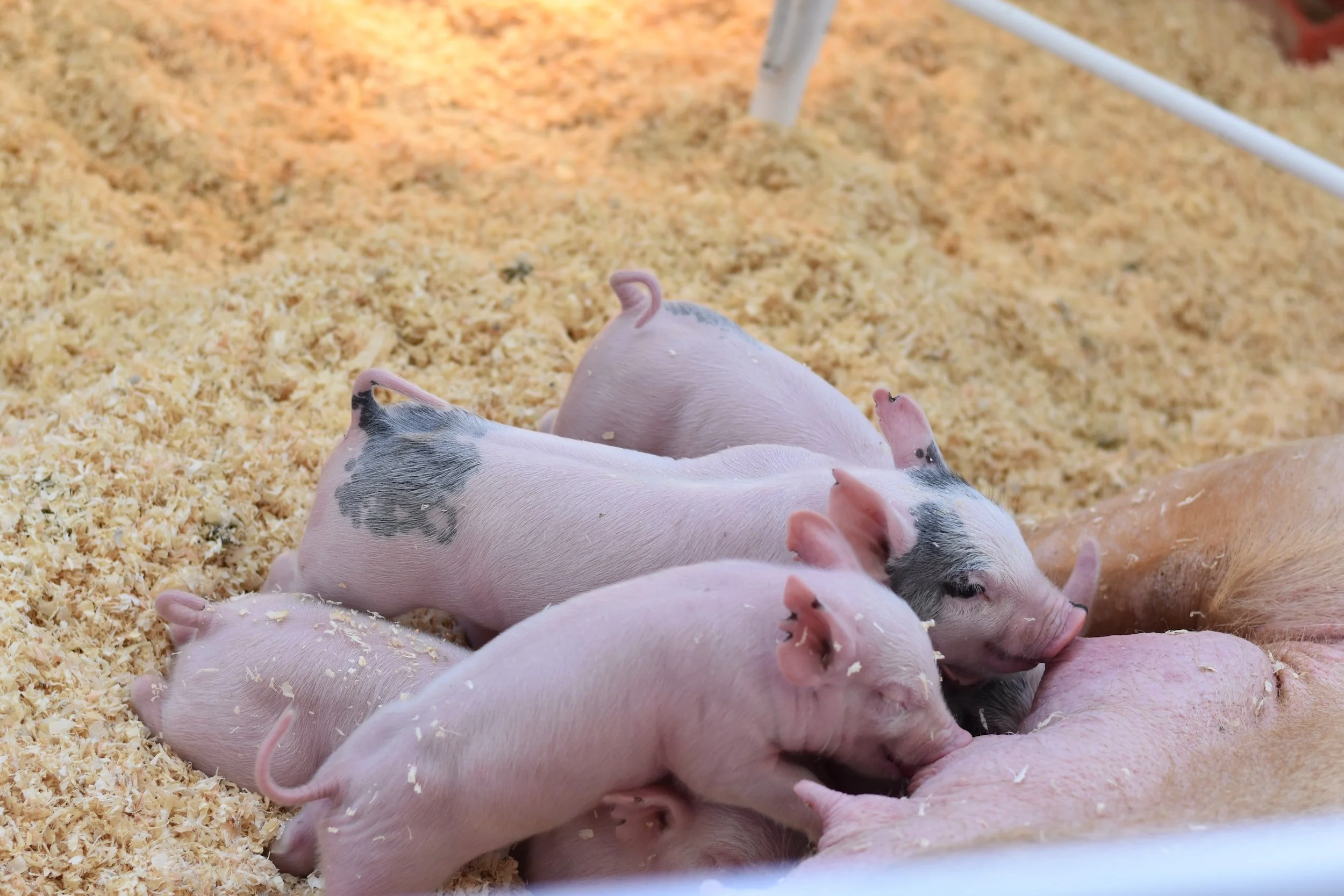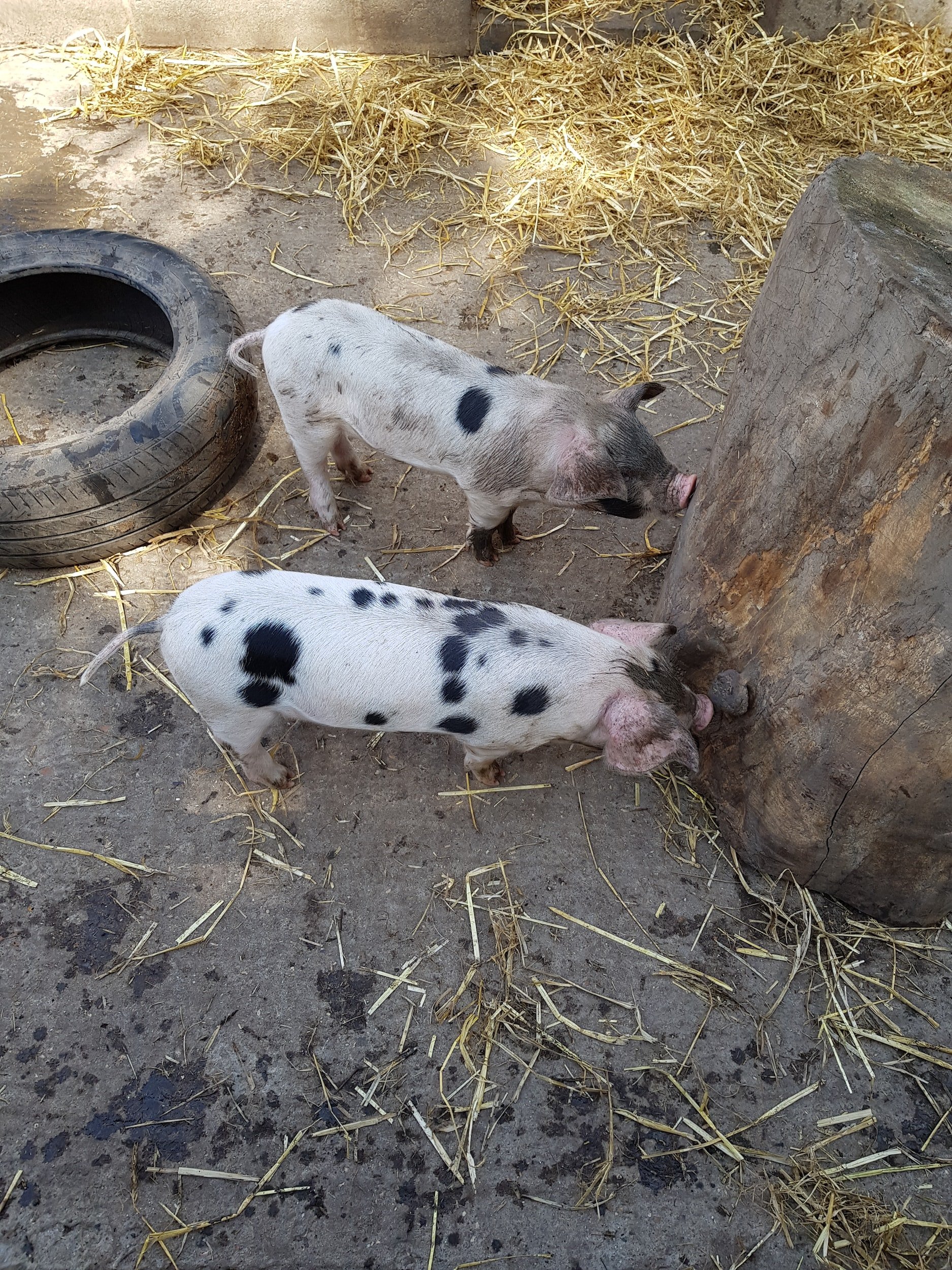Blog By: Julia Giordano
Currently, thirty-one states have laws that prohibit leaving an animal in a confined vehicle under dangerous conditions.[i] These laws typically allow a person or authority to rescue the animal from the vehicle and limit civil or criminal liability for damages to the vehicle.[ii] In a case for burglary and theft, Wayne Hsiung rescued two pigs from dangerous and abusive conditions on a privately owned farm and argued that this was no different from rescuing a dog from a hot car.[iii] This “open rescue” or “right to rescue” theory was ultimately successful, and the jury found the defendants not guilty on all charges.[iv] The rescue of the piglets attracted national attention due to the unusual circumstances surrounding the case[v], but the real question is why this legal theory was successful and what this means for animal welfare activists and farms going forward.
In 2017, five activists from the animal rights group Direct Action Everywhere (DxE) entered a Smithfield Foods facility known as Circle Four Farms in Beaver County, Utah.[vi] At the time, the Circle Four Farm was one “of the largest hog-producing facilities in the country, processing more than one million pigs a year.”[vii] Wayne Hsiung, a defendant in the case, argued at trial that the activists entered the facility to document the inhumane conditions.[viii] In particular, they were investigating whether the company was fulfilling its pledge to stop the use of gestation crates.[ix] Gestation crates are metal enclosures used to house pregnant sows and they have been banned in some states due to harsh conditions.[x]
While filming the conditions on the farm, Wayne Hsiung, Paul Picklesimer, and three others removed two sick piglets from the farm, brought them to a vet, and took them to an animal sanctuary in Colorado.[xi] The activists did not just take two piglets from a local farm. They took two piglets from one of the largest pork manufacturers in the country, videotaped it, and the video was eventually released by The New York Times.[xii] The activists discovered atrocious conditions in the pork facility, including the gestation crates that the company promised to stop using as well as dead, rotting piglets.[xiii] This case drew state and national attention, prompting the Utah Attorney General to prosecute the activists and the FBI to track the piglets in Colorado.[xiv] Despite the efforts of Smithfield and the state prosecution, the defendant’s “right to rescue” theory succeeded before a jury.[xv]
Three of the five activists took plea deals, but Hsiung and Picklesimer were each charged with two counts of felony burglary, which carries up to five years in prison, and one count of misdemeanor theft, which carries up to six months.[xvi] It is clear that the two defendants faced an uphill battle at trial. The judge prevented any mention of the defendants’ reason for trespassing on the property and any testimony about animal welfare, blocked the jury from viewing the footage that was taken in the facility, and only allowed limited photographic evidence.[xvii] The prosecution argued that allowing the footage would “cause an improper and emotional reaction within the jury.”[xviii]
Despite these setbacks, the key tactic in the defense’s case was arguing that this was not theft because the piglets were of no value to Smithfield.[xix] At trial, a veterinarian for the defense testified that both piglets had a small chance of survival at Smithfield.[xx] The prosecution countered that the animals did have value to the company and were worth an estimated $42.40 each.[xxi] However, the veterinarian stated that it would have cost hundreds of dollars to keep the piglets alive, thereby making the estimated value irrelevant.[xxii] Hsuing asked the Smithfield manager “whether his claim that piglets have value to the company applies to those they throw into dumpsters.”[xxiii] This question was quickly rejected by the judge.[xxiv] Despite much of the evidence not making it into the record, in a shocking turn of events, the jury found the defendants not guilty.
So, what does this mean for animal welfare activists? Hsuing stated at trial, “We were not there to be burglars or thieves; we were there just to give aid to dying animals.’”[xxv] Although Hsuing stated that he never intended to take a valuable pig, the fact of the matter is that the defendants admitted to taking the pig but were still found not guilty.[xxvi] This could be a one-off jury who empathized with the defendants, but it is likely that this strategy could continue to be successful. Given the horrific conditions on these farms, it will be hard for corporations like these to garner sympathy from a jury.[xxvii] It is difficult to see how rescuing a pig from these conditions would be less justified than rescuing a dog from a hot car. Since many states have open rescue statutes, it is only a natural progression that activists could start to use them as a defense in court cases like this one.[xxviii] Perhaps, instead of prosecuting these activists, companies could implement their suggestions. Until then, it is likely that corporations will have to deal with continuous public relations nightmares and emboldened activists who have juries on their side.
[i] Rebecca F. Wisch, Table of State Laws that Protect Animals Left in Parked Vehicles, Animal Legal & Hist. Ctr. (2022), https://www.animallaw.info/topic/table-state-laws-protect-animals-left-parked-vehicles [https://perma.cc/2XN5-MH9V].
[ii] Id.
[iii] Marina Bolotnikova, Activists Acquitted in Trial for Taking Piglets From Smithfield Foods, The Intercept (Oct. 8, 2022, 11:33 PM), https://theintercept.com/2022/10/08/smithfield-animal-rights-piglets-trial/ [https://perma.cc/NQT6-ZY3U].
[iv] Id.
[v] See id.
[vi] Jeff Richards, Jury finds both defendants not guilty of all charges in high-profile burglary, theft case involving piglets, St. George News (Oct. 8, 2022), https://www.stgeorgeutah.com/news/archive/2022/10/08/jmr-jury-finds-both-defendants-not-guilty-of-all-charges-in-high-profile-burglary-theft-case-involving-piglets/#.Y1leG3bMLD5 [https://perma.cc/EE26-UQZ4].
[vii] Andrew Jacobs, Animal Rights Activists Are Acquitted in Smithfield Piglet Case, The New York Times (Oct. 18, 2022), https://www.nytimes.com/2022/10/08/science/animals-rights-piglets-smithfield.html [https://perma.cc/UA6G-KYKQ].
[viii] Bolotnikova, supra note iii.
[ix] Id.; Jacobs, supra note viii.
[x] Hog welfare laws cover 9 states and 3 percent of the national herd in 2022, U.S. Dep’t of Agric. (Mar. 16, 2022), https://www.ers.usda.gov/data-products/chart-gallery/gallery/chart-detail/?chartId=103505#:~:text=Over%20the%20past%20two%20decades,to%20stand%20and%20turn%20around [https://perma.cc/ST44-JBBE].
[xi] Bolotnikova, supra note iii.
[xii] Jacobs, supra note vii.
[xiii] Bolotnikova, supra note iii.
[xiv] Jacobs, supra note vii.
[xv] Bolotnikova, supra note iii.
[xvi]Id.
[xvii] Jacobs, supra note vii.
[xviii] Bolotnikova, supra note iii.
[xix] Emily Ashcraft, Animal activists not guilty after taking piglets from Utah farm, KSL.com (Oct. 8, 2022, 6:21 PM), https://www.ksl.com/article/50491244/jury-deliberating-case-of-animal-activists-charged-with-taking-pigs-from-utah-farm [https://perma.cc/SDR9-HR6L].
[xx] Bolotnikova, supra note iii.
[xxi] Id.
[xxii] Id.
[xxiii] Id.
[xxiv] Id.
[xxv] Ashcraft, supra note xix.
[xxvi] Id.
[xxvii] Richards, supra note vi.
[xxviii] Wisch, supra note i.



